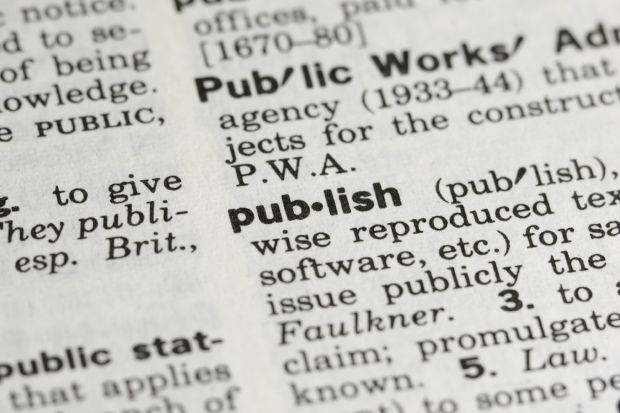Cast your mind back 20 years, to 1997. Tony Blair had just entered Downing Street and in the music industry CDs dominated and the A&R guy was king. Within a few short years, the internet had changed the music industry for ever, through the music-sharing site Napster. Today, Napster is dead and gone (although the brand name is still used) but the genie of file sharing and online music libraries is firmly out of the bottle.
So it was with wry amusement that I read in Times Higher Education of the big boys of academic publishing planning to force ResearchGate – a website on which millions of researchers share their work – to remove from its site any content that breaches academic copyright.
So let’s be clear: the publishers have every right to do this. The question though is: is this smart?
Academic publishing is a weird industry. Where else do the producers of a product not only give it away (for free), but also take time out from their day jobs to act as quality controllers of their peers’ work? The publishers then take the final product and sell it back to the producers (or at least their institutions) with some added packaging. ResearchGate circumvents this by making academic content, usually available behind a paywall, free to its members.
I accept that it gets tricky, because while the academics usually have ownership of a manuscript’s content, the publisher owns the nice packaging of the typeset version – and no one likes to read a non-typeset manuscript. The publishers have already sought to shut down the Sci-Hub repository (which illegally stores millions of academic papers), and will no doubt continue to try to protect their product. The problem is that academics broadly resent the high fees for journal access and have always shared papers when they could not be accessed directly.
Removing typeset versions from ResearchGate won’t stop this, because academics will simply replace them with pre-publication versions and look for other ways to share their work.
As a researcher, I watch with wry amusement as the publishers seek to close the stable door. Ironically, it is the publishers who have developed the various metrics (impact factors, SNIPs, citation scores) that we academics chase. These metrics are packaged up and sold back to academic institutions as a way to measure the performance of their academics.
So the publishers have created a system in which academic success is measured by your ability to get read and get cited. ResearchGate offers a service that helps academics to do just that. Yes, it is parasitising the academic publishing industry, but academic publishing appears to be a parasite itself (feeding on the juiciest thoughts from the world’s great minds).
We can’t unmake the academic publishing system. But to quote Bob Dylan, “the times they are a-changing”. Surely academic publishers would be better off recognising that their industry has to change, and work with companies like ResearchGate to improve access to journal content?
In the end, paper journals are dead. Preprint servers are on the rise (ArXiv, BioArXiv, to name two). And in time, the peer-review system could probably function without actual journals. Academics are already responding to these changes, and the publishers need to wake up. Or (to quote a great “philosopher”): “If you want to make the world a better place, take a look at yourself and make a change – woo!”
Billy Hunter is Leverhulme early career research fellow at Queen’s University Belfast.




